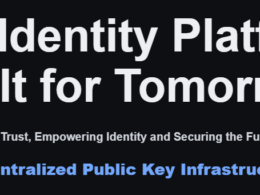The horseshoe effect or theory describes the resemblances that far-right and far-left ideologies have on the political spectrum. The term was coined by Jean-Pierre Faye, a French philosopher, in his 1996 book titled “The Century of Ideologies”. Faye used the horseshoe metaphor to describe the political position of German political parties, from the Communist Party of Germany to the Nazi Party, in 1932. Although Faye’s perspective of the horseshoe effect was used to describe how authoritarian and/or totalitarian both ends of the political spectrum are, I want to propose a new take on this concept. Instead of arguing that both extremes want total control over the population (to achieve completely different goals), I think it can also be used to unite people that are on different sides of the ideology spectrum, that value freedom, against the rise of totalitarianism.
In this short video of Bret Weinstein, evolutionary biologist and former professor at Evergreen State College, from 2017 he proposes the idea that libertarians on the left and right should unite to fight against authoritarianism.
Bret refers to the famous political compass test that often appears in internet forums, where you have four quadrants representing left, right, libertarian and authoritarian. Meaning you could do the test yourself to find out if you are left leaning libertarian, right leaning libertarian, left leaning authoritarian or right leaning authoritarian. Bret makes the point that left and right leaning authoritarians, although having in common the use of population control to achieve their goals, they don’t share any other qualities that can unite them. Unlike left and right leaning libertarians who do share more values in common and can in fact unite to fight against a divided front of left and right leaning authoritarians.
The Rise of Surveillance Capitalism

Shoshana Zuboff, a Harvard Business School professor, first presented the concept of surveillance capitalism in her 2014 essay titled “A Digital Declaration“. Later on in 2015, she wrote an academic paper titled “Big Other: Surveillance Capitalism and the Prospects of an Information Civilization” which went on to receive the International Conference on Information Systems Scholars’ 2016 Best Paper Award. Four years later, in 2019, Shoshana condensed all of her work about this subject into a new book titled “The Age of Surveillance Capitalism: The Fight for a Human Future at the New Frontier of Power”.
Defining surveillance capitalism as a potent force that constitutes a “coup from above,” Zuboff outlines how this phenomenon usurps people’s sovereignty and poses a significant threat to the stability of Western liberal democracies. Central to her analysis is the concept of the “epistemic coup,” whereby tech corporations seize control over knowledge distribution, challenging the fundamental dynamics of authority and power in an information-based civilization. With profound insight, Zuboff reveals the extent to which surveillance capitalists wield authority over who knows, who decides, and who controls critical information infrastructures—without any democratic mandate. Shoshana delves deep into the notion of surveillance capitalism as a “rogue mutation of capitalism,” casting light on its expansion and dominance within the realm of big data and commercial surveillance. She introduces the concept of a “surveillance-based economic order,” which has redefined privacy, antitrust laws, and individual autonomy. Underpinning her analysis is the concept of “instrumentarian power,” a potent contrast to traditional totalitarian power, which emerges as a result of surveillance capitalism’s pervasive operations. This new power dynamic poses a direct threat to both individual autonomy and democratic principles, as it is driven by the relentless pursuit of capital accumulation, transcending the confines of conventional market capitalism.
Although she makes the differentiation between surveillance capitalism and government surveillance, as we have recently found out both are closely related. Intelligence services and law enforcement in the United States are buying significant amounts of personal data from companies like Google and Facebook. Including real time location from cell phones, violating the fourth amendment of the constitution which prohibits unreasonable searches and seizures without a warrant. This alliance between Big Tech and the surveillance State has been growing in power since the start of the millennium. Little by little the products and services we use and rely on everyday are tracking our every move and decision we make. We are sleepwalking into a dystopian society like the one George Orwell warned us about. The nonchalant response to this new reality often goes something like this: “we live in a world where companies are using data to understand us better and give us exactly what we want. It’s like having a personal shopper who knows your tastes inside out”. I can’t argue that it does have some benefits but the price we are paying for this convenience is far too great and we won’t know the real price tag until it is too late.
The Culture War

The topic of the so-called “culture war” is very complicated and deserves its own article to provide a proper overview of the issue with all its contributing factors and involved players. In this instance I want to propose the idea that the culture war is not an organic social struggle but rather it was manufactured by Wall Street titans like Blackrock, Vanguard and State Street as a distraction and counter-offensive to real grassroots social movements like Occupy Together. Which began as a populist response to the Global Financial Crisis of 2007-2008 and the inequality it exacerbated worldwide.
Wall Street and big corporations have a vested interest in maintaining a status quo that allows them to maximize profits. Division and polarization can be useful tools for distracting the public from economic inequality and corporate influence. By amplifying cultural debates, attention is diverted from issues like wealth distribution, workers’ rights, and corporate accountability. Large corporations, including media conglomerates, have the ability to shape public discourse by emphasizing certain issues over others. When sensational or polarizing topics dominate the news cycle, it can overshadow economic and political concerns that could threaten the interests of Wall Street and the corporate elite. Engaging in culture wars can sometimes fragment social and political movements. Activists and advocates who might otherwise unite against economic injustice and corporate power can become divided along cultural lines, diluting the potential impact of collective action. By focusing on cultural issues that evoke strong emotions, the public’s attention can be easily directed away from systemic problems that require more complex and long-term solutions. This can maintain the illusion of progress while underlying issues remain unresolved.
Another leg of the culture war, closer to the corporate world, is the introduction and enforcement of environmental, social, and corporate governance or ESG for short. The term ESG was popularly used first in a 2004 report titled “Who Cares Wins“, which was a joint initiative of financial institutions at the invitation of the United Nations. In less than 20 years, the ESG movement has grown from a corporate social responsibility initiative launched by the UN into a global phenomenon representing more than $30 trillion in assets under management. Like most initiatives that get corrupted along the way, ESG may have been created in 2004 with good intentions as a way to integrate broader environmental and social concerns into the financial equation of a company. But what actually ended up happening is that Wall Street titans used it as a way to control and influence public companies concerned with their ESG rating, just to make a profit. As the culture war heated up, so did the pressures on executives to implement changes that would result in better scores. ESG lacks standardized definitions and metrics across industries, making it difficult to measure and compare companies’ performance accurately. This lack of consistency can lead to confusion for investors, regulators, and consumers, potentially resulting in misleading claims or “greenwashing” – where companies overstate their environmental and social responsibility efforts. ESG initiatives can be used as a marketing tool to appeal to socially conscious consumers without necessarily leading to substantial change. This can lead to a perception that companies are simply capitalizing on popular sentiments for their own benefit, rather than genuinely committing to positive change.
The Horseshoe Effect

We have gone through a short and quick summary of the current state of surveillance capitalism and the culture war. These two phenomenons are more intertwined than most people realize, it’s the conjunction of Big Tech, Wall Street and the surveillance State joining forces to control, dictate and dominate the current zeitgeist, the spirit of our era. This is where blockchain technology appears as a tool for positive change and empowerment for the people who still hold dear the core values of libertarianism. The same way Occupy Together was a social response to the Global Financial Crisis of 2007-2008 and the culture war as a response by the status quo against populist grassroots movements. Bitcoin’s whitepaper publication was a technological response to the same traumatic event. As such it can be used as a tool to unite both left leaning and right leaning libertarians against the rise of authoritarianism.
But how? You may ask, by bridging the gap and realizing that the person across from you in the political spectrum probably has more similarities than differences. The powers that be rely on the people being divided to keep themselves in power, as such the culture war has been very successful in dividing people over superficial arguments that would instead be united by deeper more important values, like individual freedom. The Blockchain Socialist, is a Youtube channel that presents the value and use cases of blockchain technology to a left leaning audience who are often quick to dismiss it on the grounds that cryptocurrency is a right wing thing. These efforts to bridge the gap should be encouraged and nurtured if we want to make a real change in the world.
Blockchain and Bitcoin, as the first implementation of cryptocurrency, have the important role of taking away the power of money from the State. Just as it was as important to take away the power of the church for the advancement of human progress and individual liberties. But just like the protestant reformation and the enlightenment these changes take time and don’t happen without a fight. Friedrich Hayek foretold the rise of cryptocurrencies back in 1984 and he also stated “because we can’t take them violently from the hands of the government, all we can do is by some sly or round-about way introduce something they can’t stop” and that’s exactly what Satoshi Nakamoto did with Bitcoin. That’s what blockchain represents. a tool for peaceful revolution that any person on this planet can use to opt-out from an ever increasing authoritarian world into a world being constructed around freedom.
The peaceful revolution of opting out against the ever increasing authoritarian doctrines of the status quo disguised as moral imperatives that can’t be opposed, like for example The U.S. Government Wants To Control Online Speech to “Protect Kids”, is at the heart of what blockchain technology proposes and is capable of achieving. Although still in its infancy, we have already seen Decentralized Autonomous Organizations (DAO) popping out around all kinds of subjects, interests and concerns. These represent organic grassroots organizations that wouldn’t be possible without this technology. Blockchains dedicated to privacy like Monero, Zcash and Dash represent advancements in zero-knowledge proofs to guarantee anonymity and privacy when transacting on the public ledger while maintaining transparency.
There’s still a lot to be built, fixed and experimented on but the core values of decentralization, autonomy and sovereignty must be held high and protected as the efforts from the status quo increases, trying to divide us and corrupt what the forces of good have created. Always remember the wise words from JRR Tolkien “Evil cannot create anything new, they can only corrupt and ruin good forces have invented or made”










